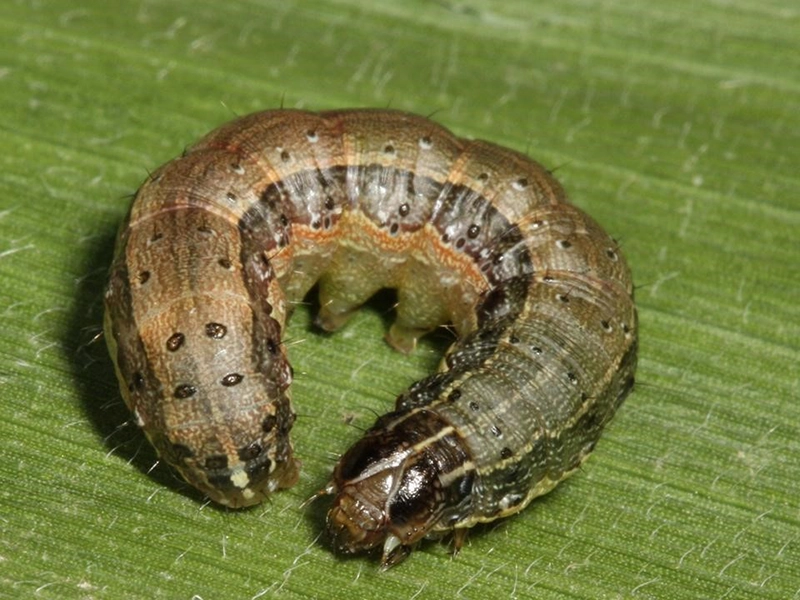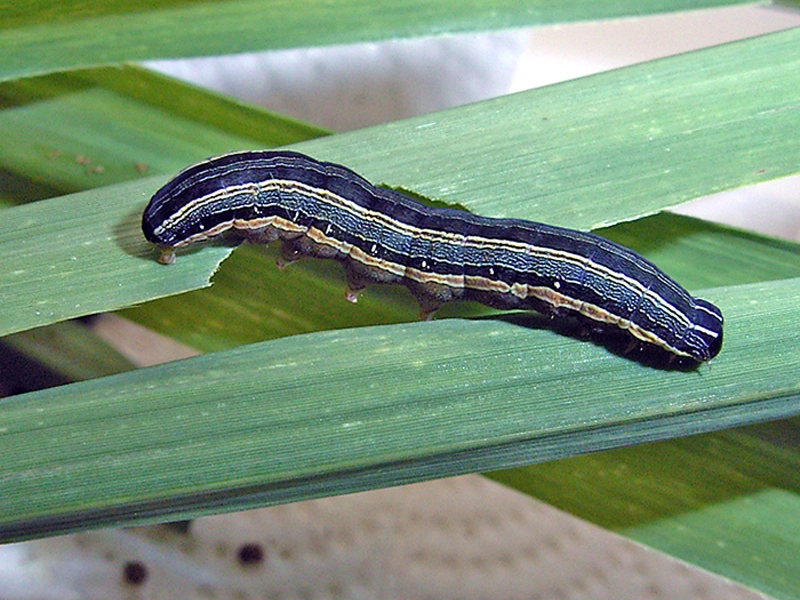There are current reports of sporadic armyworm outbreaks in sugarcane on the North Coast, Umfolozi, Mkuze and Pongola regions. This alert aims to raise awareness and to help mitigate any significant damage to the cane as a result of infestation by the pest.
There are two major types of armyworm in South Africa, namely Fall armyworm (FAW) (Spodoptera frugiperda) and African armyworm (Spodoptera exempta). Both species attack the younger foliage of the cane plant. Other plant species on which armyworm feed in South Africa include maize, sorghum, potato, soybean and groundnut.
Fall armyworm (FAW)
Figure 1: Fall armyworm: Main identification marks include the ‘inverted Y’ mark on the head and the ‘square’ black spots on the second last segment. Photo: SANBI.
Figure 1 (left): Fall armyworm: Main identification marks include the ‘inverted Y’ mark on the head and the ‘square’ black spots on the second last segment. Photo: SANBI.
African armyworm
Figure 2: African armyworm: Main identification features include dark green and black larval colouration with longitudinal white stripes down the length of the larvae.
Figure 2 (left): African armyworm: Main identification features include dark green and black larval colouration with longitudinal white stripes down the length of the larvae.
Management in cane
Spraying insecticides for the control of both species of armyworm can be effectively planned as they feed day and night. Table 1 shows a list of insecticides that are registered for the control of armyworm, but which are also registered for the control of Eldana saccharina on sugarcane.
Where growers do encounter severe infestation of armyworm in upcoming weeks, the application of insecticides in keeping with the start of the eldana spray programme (starting in March 2025) as recommended by SASRI will help manage any armyworm infestation.
TABLE 1: Registered agrochemicals to control armyworm in South Africa, also commonly used on cane for eldana management
| Product name | Mode of Action |
| Coragen | Stomach and contact |
| Steward | Stomach and contact |
| Emma | Stomach translaminar |
| Ampligo | Stomach and contact |
| Malathion | Stomach and contact |
Incidence of African armyworm in Zululand


